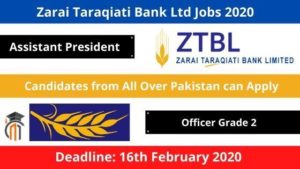The European Master in Agricultural, Food and Environmental Policy Analysis aims at providing a high quality education in designing and assessing public policies targeted to the agricultural and food sector as well as the rural environment. This European Master responds to the increasing need to better understand and anticipate the various and often complex socio-economic and environmental effects of these policies either in a functioning market economy as in the European Union or in economies in a development or transition phase. The European Master offers a two-year academic curriculum with integrated and advanced theoretical, methodological and empirical courses in economics and quantitative methods as well as in agricultural, food and environmental sciences, agricultural and trade policy, environmental and natural resource policy, rural development policy and agribusiness management and market analysis. To connect theory and methodology to practice, a problem solving project is developed and presented as a master thesis at the end of the two-year curriculum.
The European Master is jointly organised by five leading European educational and research institutions: the Corvinius University of Budapest (CUB) in Hungary, the Swedish University of Agricultural Sciences (SLU) in Sweden, the Rheinische-Friedrich-Wilhelms Universität Bonn (UBonn) in Germany, the Université catholique de Louvain (UCL) in Belgium and the Universitat Politècnica de Catalunya (UPC) in Spain. These five partner universities are recognised worldwide for the quality of their educational programme and scientific achievements in agricultural, environmental and economic sciences. The required 120 ECTS credit points are structured into three blocks: a minimum of two semesters of studies (55 ECTS) at a first partner university, as well as two semesters of studies (60 ECTS) at a second partner university, and two joint summer schools (5 ECTS) at partner universities. The language of instruction and examination is English for most of the courses in three partner universities while it is either French at UCL or Spanish at UPC for most of the courses. The Master degree is awarded as a double degree from the two home and host universities.
This European Master is accessible to candidates holding a bachelor degree or a recognized equivalent academic degree with a minimum of 180 ECTS or 3 years university study from an accredited institution, with sufficient undergraduate training in economics and agricultural or environmental sciences, with an excellent scholastic average, and with fluency in English but also French or Spanish if attending either UCL or UPC respectively.
Recipients of this European Master are qualified to understand the fundamentals of public policies oriented to the agricultural and food sector, rural areas and natural resources, develop and use quantitative methods to perform rigorous socio-economic and environmental assessment of these public policies, and provide sound and relevant policy recommendations for a more sustainable development of this sector and rural areas. They are qualified to take responsibilities in international, national and regional agencies, non-governmental organisations, consultancy firms, professional organisations and private companies.
Main area: Social sciences (including economics), cultural sciences
Second area: Agricultural and forestry sciences
Third area: Geography, earth and environmental studies
At the end of the course, graduated students will be awarded a double degree.
Student scholarships
- Erasmus Mundus scholarships for non-European students (Category A)
The Erasmus Mundus programme of the European Union awards a limited number of individual scholarships to non-European applicants to the European Master in Agricultural, Food and Environmental Policy Analysis. When non-European candidates apply for admission to the AFEPA European Master, they can also apply for this scholarship programme using the same application form. If non-European candidates applying for this scholarship programme are admitted to the AFEPA European Master but are not offered an Erasmus Mundus scholarship, then admitted candidates cover the tuition fees and all other expenses with funding from an alternative scholarship programme or private sources.
For a non-European applicant, the scholarship amounts to:
| a total contribution to travel, installation and any other type of costs | € 8,000 |
| a contribution to cover the tuiton fees of the European Master | € 3,000 per semester |
| a monthly allowance | € 1,000 per month |
Following the 2009-13 Erasmus Mundus programme guide, without prejudice to high academic standards, no more than two of the applicants selected for an Erasmus Mundus scholarship should have the same nationality to ensure geographical diversity scholarship holders.
- Erasmus Mundus scholarships for European students (Category B)
The Erasmus Mundus programme of the European Union awards a limited number of individual sholarships to European applicants to the European Master in Agricultural, Food and Environmental Policy Analysis. When European candidates apply for admission to the AFEPA European Master, they can also apply for this scholarship programme using the same application form. If European candidates applying for this scholarship programme are admitted to the AFEPA European Master but are not offered an Erasmus Mundus scholarship, then admitted candidates cover the tuition fees and all other expenses with funding from an alternative scholarship programme or private sources.
For a European applicant, the scholarship amounts to:
| a contribution to the tuiton fees of the European Master | € 1,500 per semester |
| a monthly allowance | € 500 per month |
There is no contribution to travel, installation and any other type of costs.
Following the 2009-13 Erasmus Mundus programme guide, without prejudice to high academic standards, no more than two of the applicants selected for an Erasmus Mundus scholarship should have the same nationality to ensure geographical diversity scholarship holders.
for further info see the link






